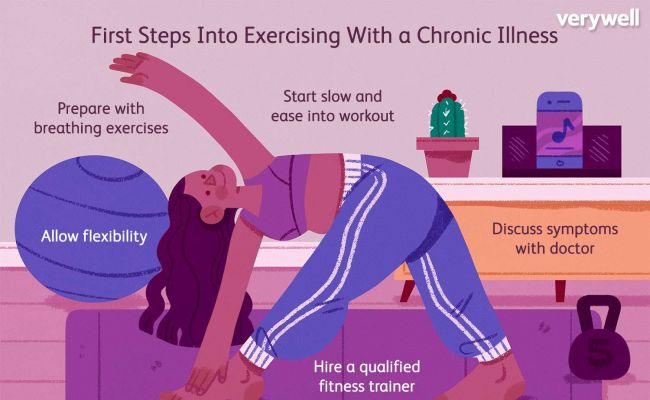What is a Chronic Illness?
The chronic illness healthcare business is anticipated to have a net worth of around 1,15,000 crores by 2050, with a present net worth of slightly more than 40,000 crores as of 2023. That is only a fraction of the enormous load that persons suffering from chronic illnesses must bear.
Psychological stress, on the other hand, is a greater strain.
When it comes to chronic sickness, is a burden that many people overlook.
As a result, understanding the psychological consequences of mental health in chronic conditions is critical.
A Co-dependent Equilibrium in Physiological and Psychological Wellness
Coping with a chronic sickness on a daily basis entails dealing with chronic pain.
Chronic illnesses have been shown to be quite painful for the majority of people.
As a result, when it comes to such pain, mental anguish is a highly disruptive factor.
This encompasses feelings of anxiousness, frustration, guilt, rage, and long-term melancholy.
Emotions are key behavioral variables that influence how one reacts to and deals with pain via neural syndicates and connections. As a result, while acknowledging the sensory part of pain is reasonable, focusing on the emotional aspects of pain is equally vital because chronic and emotional suffering doubles the pain.
Pain is essentially a survival signal issued to the brain that activates the fight-or-flight response.
This creates physical and chemical changes in the brain.
Physiologically, your heart rate will increase along with your blood flow, and other subjective reflexes will activate at the same time.
This physiological reaction will fade away once the pain has decreased in the case of transient discomfort.
Consider chronic pain that never truly goes away.
Imagine having a physiological reaction like this every day.
The Matrix of Pain
The pain matrix is a network of neural pathways and brain regions that light up when you are in pain.
The thalamus, inferior parietal lobe, superior temporal gyrus, cerebellum, middle and superior frontal gyri, anterior cingulate cortex, and primary/secondary somatosensory areas are all part of it.
As a result, hormones such as pregnenolone, cortisol, and adrenocorticotropin are produced.
An increase in such high neurological and endocrine activity can result in irritation, weariness, stress, anxiety, sadness, and other symptoms.
As a result, worsening mental health as a result of a chronic illness is very prevalent and should be addressed carefully.
Cognition
Understanding, thinking, and decoding environmental stimuli are all cognitive functions.
Chronic illnesses and the discomfort that comes with them can have a significant impact on your daily tasks, such as your ability to think clearly, solve problems, focus, and so on.
This is mostly due to changes in the physical parts of your brain and the functional aspects of your endocrine system that occur when you have a chronic disease.
Your cerebral circuits, cardiovascular systems, and sensory-motor processes are all significantly impacted.
Anxiety
As previously said, chronic pain constantly activates your fight-or-flight reaction.
In the presence of danger, whether external or internal, the fight-or-flight reaction is triggered by a quick surge of chemicals such as adrenaline and cortisol.
In order to keep you alive, this fundamental response induces sensations of anxiety and fear.
It takes a lot for your body to deal with long periods of worry, anxiety, and panic.
Dealing with discomfort is also physically demanding. Fighting for your life demands a lot of energy from your immune system.
As a result, the constant anxiety, racing heartbeat, raised blood pressure, and so on can be mentally and physically tiring.
Depression
Depression may have a clear evolutionary link to chronic disorders.
Suffering from a sickness or ailment that limits our day-to-day lives as humans are emotionally distressing and can lead to a sense of pessimism as a hard-wired mechanism.
Nevertheless, persistent grief could be the outcome of or the reason for isolating yourself from the rest of the world.
This could be due to an illness being treated in your safe area or a lack of energy to interact with the rest of the world.
When the threat is internal rather than external, you may experience a significant lack of control over your circumstances.
Every external threat can be dealt with by eradicating it in a short amount of time.
Nonetheless, you may feel helpless if this fundamental threat is inside and cannot be defeated for an extended period of time.
How Do Chronic Illnesses Affect Carers and Loved Ones Psychosocially?
Under every given condition, carers of chronic illness patients must bear the weight of stress and anxiety.
If you are a caregiver or a loved one of the patient, you must feel as if this anxiety, fear, and hopelessness never truly goes away and is an unpleasant constant companion.
Many of you must have given up employment, hopes, and aspirations to support your loved one’s treatment and care.
This not only carries with it a tremendous burden of guilt and regret but also a lot of irritation and hatred towards the world or oneself.

From financially supporting the patient’s treatment to personally caring for them on a daily basis, the psychological weight comes from all directions.
When it comes to financial difficulties, health insurance coverage might be a lifeline.
As carers, you could use such financial assistance tools to better assist your family or loved ones who are suffering from chronic illnesses. You can not only claim monetary coverage or daily cash benefits, but you can also use cashless facilities through your insurance plan.
The health insurance TPA (Third-party Administration) will provide you with an ID to present at a psychological or medical facility, and you will be able to obtain psychological care cashlessly and without concern.
What You Could Do
Owing to a dearth of research in this field, it is difficult for people to identify numerous therapy choices for those suffering from psychological problems as a result of a chronic illness.
There are, nevertheless, a few things you may do to bravely deal with the mental tornado.
Psychiatric treatment
- Counseling
- Groups of support
- Cognitive repositioning
- Programs for Stress Reduction
- Psychiatric treatment
Also, read Kiera Scharf, Kim Horsman, Devlin Elliott
Closure
Feeling as if the world is about to fall apart after being diagnosed with a chronic illness is understandable and normal.
Your emotions are valid, whether they be worry, paranoia, helplessness, melancholy, traumatic stress, wrath, irritation, regret, or agony.
Despite the fact that you have no influence over the course of your disease, you must always remain strong.
Remember that you are a living, sentient being with a long journey ahead of you and that overcoming these conditions with courage can help you a long way.
Also, seek the assistance of a psychological or psychiatric specialist to help you deal with the psychological discomfort. Remember that you are not alone.




